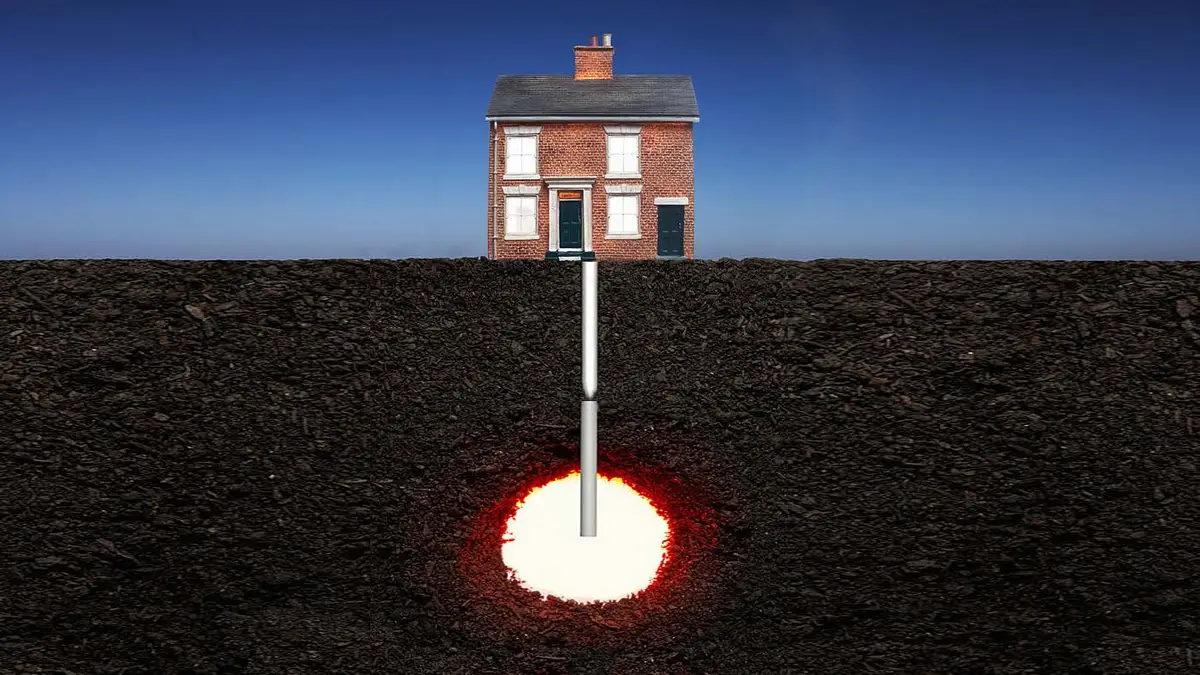
Geothermal house heating
If you're looking for an energy-efficient way to heat and cool your home, one option is a geothermal heat pump. So what exactly is a geothermal heat pump?
Simply put, a geothermal heat pump is a heating and cooling system that transfers heat to or from the ground.
The technology was invented in the 1940s, gained popularity in Sweden in the 1970s, and has slowly spread across Europe -- ultimately jumping the pond to the United States. Now, about 50,000 units are installed each year in the U.S. alone.
Also called GeoExchange, earth-coupled, ground-source, or water-source heat pumps, they've been installed by the likes of the Queen of England, George W. Bush, and Elton John. But that's not to say they're out of reach for the rest of us.
Here's what you need to know about how they work, how much they cost, and (last but not least) how much money they can save you in the long run.
How geothermal heat pumps work
"These systems use the Earth's relatively constant temperature to provide heating, cooling, and hot water for homes," explains Erin Portman of the International Ground Source Heat Pump Association. "Using the pump, heat is moved from the home to the ground in the summer, and from the ground to the home in the winter."
Since the Earth's temperature is fairly constant compared with the highs and lows happening above ground, geothermal heat pumps are energy-efficient and good for the environment. By avoiding the heavy use of fossil fuels, "the systems are eliminating more than 3 million tons of carbon dioxide from the environment," Portman says. "That's the equivalent of taking 650,000 automobiles off the road."
So go ahead, feel good about your part in helping out the environment.
How to install a geothermal heat pump
To find an installer who has gone through the proper training to install geothermal heat pump systems, go to the directory at IGSHPA.org, which includes a list of accredited professionals in your area.
The installation process entails drilling a hole into the ground that can be as shallow as 4 feet to upward of 400 feet deep for commercial systems (generally the deeper the hole, the more efficient the system). Your home must also be outfitted with particular electrical work, ductwork, and water hookups. The installation can be completed within a couple of days.
What's the cost of a geothermal heat pump?
On average, a geothermal heat pump for a 2,500-square-foot home will cost between $20,000 and $30,000. That's about 50% to 75% pricier than a conventional heating and cooling system.
Yet while a geothermal heat pump carries a heavier price tag at the outset, it can reduce your heating and cooling costs by as much as 25% to 50% -- and will therefore pay for itself in about five to seven years. Plus these systems are built to last, with components having a life span of 20 to 25 years.
Special financing may also be available along with the potential of tax credits that will curb those costs by as much as 30%. Individual states also offer incentives, so don't write off this eco-friendly option before you've done your homework.



















